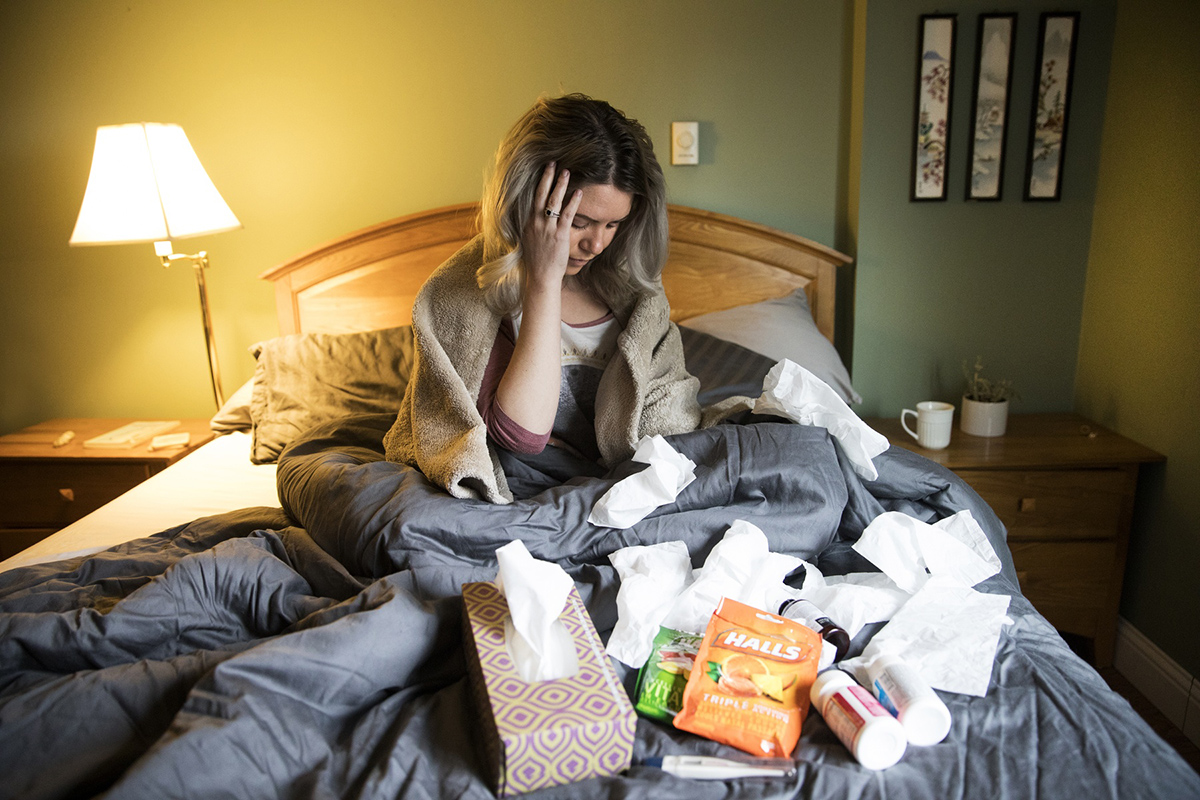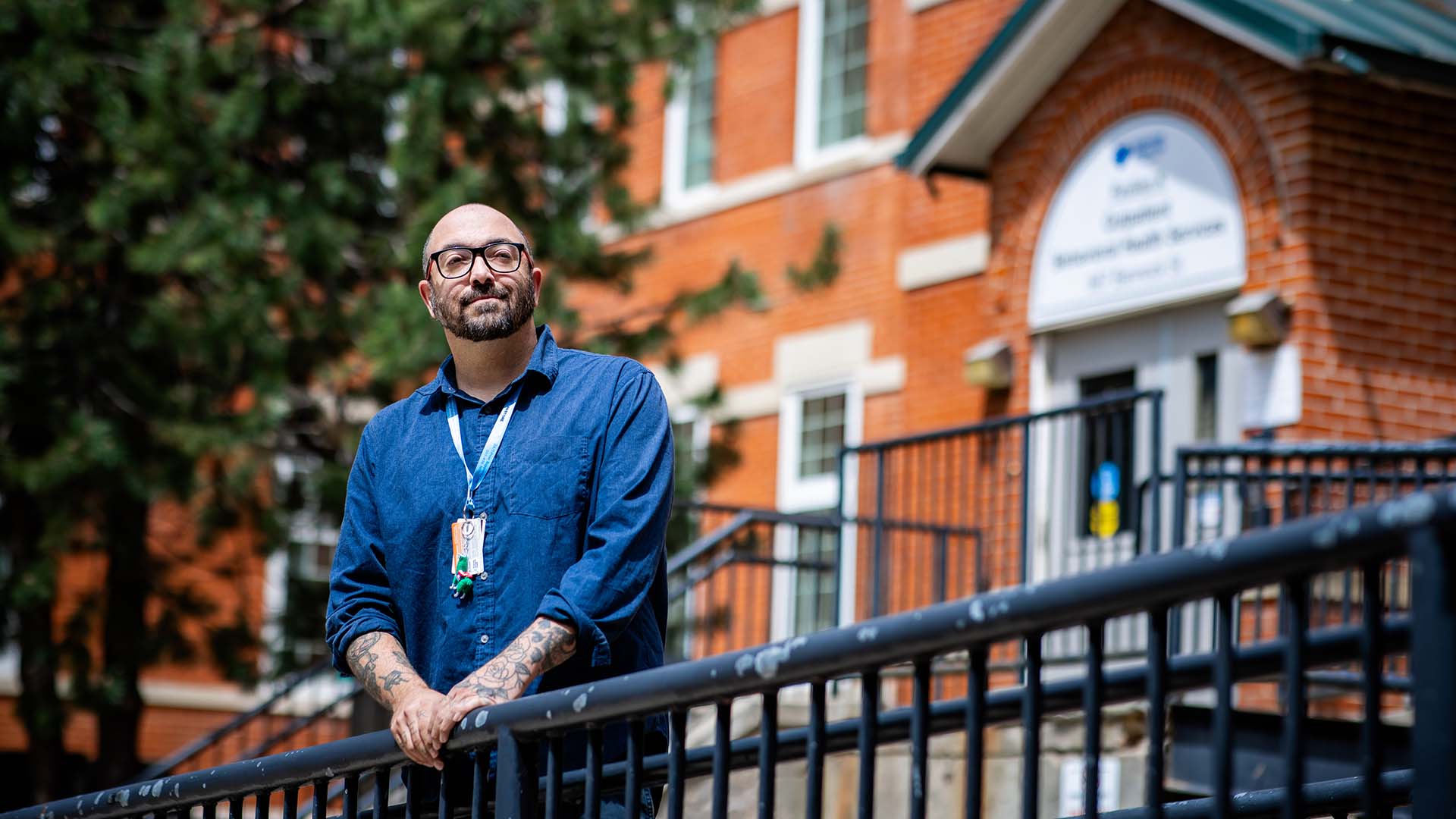5 need-to-know answers about this flu season
Ah-choo! There’s a nasty bug going around – so equip yourself with a doctor’s insight that’s nothing to sneeze at.

You’ve read the headlines. This is the worst influenza season in nearly a decade. 37 children so far have died as a result of being sick. And it’s hitting baby boomers particularly hard.
Wherever you turn, the flu’s in the news. And though we mask symptoms with over-the-counter medicines, it’s a temporary solution – which may be superficial: A recent paper in Psychological Science co-authored by Associate Professor of Psychology Chad Mortensen, Ph.D, examined how perception of infectious disease led to an attempt to hide or downplay characteristics of unhealthiness, as anyone who’s uttered “Oh, I’m not that sick” can attest, convincing absolutely no one.
So, as there may be something infectious in the air tonight (that isn’t a Phil Collins drum fill), we caught up with Michelle Tollefson, M.D. The associate professor in MSU Denver’s integrative health care program discussed why this season is remarkable, what to do if you come down with the flu and how best to avoid it in the first place.

Why is this flu season so bad?
Michelle Tollefson: Usually we see different states impacted by influenza at different times, but this year it hit across the continental United States at practically the same time; it’s peaked as a widespread outbreak for the past three weeks. Also, the primary strain we’ve seen this year – H3N2 – is associated with more severe symptoms, hospitalizations and deaths, yet our vaccine is typically less effective against this variant. All of this combines for a rough flu season.
How has this impacted us locally?
MT: Flu-related hospitalizations in Colorado have decreased for four straight weeks. Although schools have had to close in at least 12 states, none have closed in Colorado, but I’ve had several students gone from classes with symptoms. This is probably a good thing – people want to come back as soon as possible, but don’t realize that they can be contagious both before symptoms start as well as five to seven days after their onset. As it’s often spread by respiratory droplets from sneezing and coughing it’s incredibly easy to catch; we recommend not returning until at least 24 hours after temperature normalizes without a fever-reducing medicine.
How can you tell whether it’s a cold or the flu?
MT: One of the big signs is that the flu starts more abruptly with fever, chills, fatigue, headaches, a sore throat and sneezing – general upper-respiratory symptoms, while colds come on gradually and aren’t typically accompanied by a fever. People also think that there are gastrointestinal issues like vomiting and diarrhea with the flu, but those are more common in children; it’s really a lot of those respiratory issues that are more intense than colds. The CDC has a great resource on this.

What are preventative measures people can take to avoid getting sick?
MT: It’s not too late to get a flu shot – and you definitely should! Even though H3N2 is tough, the vaccine is likely more effective against other strains; we’re also seeing H1N1 and Influenza B. And even if you were to get sick, it probably won’t be as severe.
In addition, take other preventative measures. Reduce contact with potentially exposed environments like door handles; wash your hands with soap and water (or, in lieu of that, use hand sanitizer to disinfect); and try not to touch your eyes, nose and mouth too much. General practices like getting enough sleep, eating healthy and managing stress helps your immune system, too.
What steps should people take if they come down with the flu?
MT: Most people will be able to recover at home within 7-10 days, but it’s never bad to err on the side of caution and see a medical practitioner. Children, people with chronic health conditions, the elderly, pregnant women and – with this strain, for some reason – baby boomers from 50-65 are particularly high-risk, so they should contact a doctor if exhibiting symptoms. Sometimes antivirals are prescribed, which work best in the early stages; antibiotics don’t help with the flu.
If you are sick, make sure to stay well-hydrated, get lost of rest, cover your nose and mouth when coughing and minimize contact with others to limit the spread. And if in doubt – stay home!
The Health Center at Auraria serves MSU Denver students, faculty and staff on campus.







